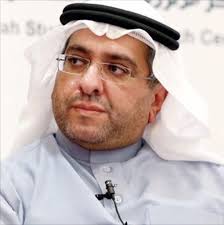 In the Spring of 1991, several angry youth gathered around sheikh Mohammed Bin Saleh Al Athemein (d. 2001) following the Asr (afternoon) prayer. The sheikh agreed to meet the persistent guests in a mosque room. Three of the guests had previously set a police chief’s car ablaze because was “secular” according to them, and set a video rental shop on fire in two different cities. They did not need a fatwa from Bin Athemein to carry out their deeds, but they required one for recruiting purposes.
In the Spring of 1991, several angry youth gathered around sheikh Mohammed Bin Saleh Al Athemein (d. 2001) following the Asr (afternoon) prayer. The sheikh agreed to meet the persistent guests in a mosque room. Three of the guests had previously set a police chief’s car ablaze because was “secular” according to them, and set a video rental shop on fire in two different cities. They did not need a fatwa from Bin Athemein to carry out their deeds, but they required one for recruiting purposes.
The conversation with the sheikh was exhausting and sarcastic with moments of raised voices. At one point, one of the men asked the sheikh why he was coward denying the clear righteous path? The sheikh simply smiled. Another guest said “We have weapons. It is time to forcefully bring down disobedience to Islam”. The sheikh calmly answered: “No, no. This is unacceptable”. He then turned to the most passionate among them and gripped his hand: “Don’t you ever raise your gun. Do not ever think of doing that again”.
During the 60s, Sheikh Bin Athemein was rebuked along with Bin Baz by the grand mufti, sheikh Mohammed bin Ibrahim Al Sheikh, for their fatwa on the triple utterance of divorce. The grand mufti was discontent that they differed with him.
Bin Athemein inherited the school of Bin Sa’adi and his former clerics which gave him a different shade of Islamic jurisprudence, and because he sculpted unconventional concepts for conventional discourses in doctrines, names and attributes, 1984 was a turbulent and cruel year for him.
However, the following years saw an increase in his popularity. The King trusted the sheikh which was fulfilled by a royal visit to his home in April 1988. None of his detractors and rivals could doubt his knowledge and “righteous doctrine”, and he was later conducted as member of the “council of senior scholars”.
Bin Athemein and another fundamentalist Meccan Islamic jurist, Abdul Wahab Abu Suleiman, were two members of the council of senior scholars whom caused whimper among other colleagues. Abu Suleiman maintained his differences from the crowd appearing at times a bit of a stranger. As the habit went, once a scholar is part of the Council, the new status imposes a minimum degree of conservatism that aligns with the spirit of the institution is required. This compelled the Sheikh to adapt to less openness in his stances. However, the stubborn Sheikh could not be deceived by political Islam. This is particularly important to understand another group of clerics who sought to join the Council by utilizing popular sentiments to rival the official members in an unofficial manner. They began appealing to religious currents that slightly supported political opposition and gradually these currents made significant gains and impacts on government institutions.
Bin Athemein, however, remained resilient. From August 1990 to September 1994, amid the pinnacle of political Islam’s madness, the Sheikh proved his loyalty despite the continuous ridicule and slandering. He was a true mystic. Greed and earthly riches were not what he sought.
In September 1994 and at the front door of his own home he was subjected to some of the harshest, cruelest words any cleric could possibility tolerate. During those hard days he issued an important fatwa: “A Muslim may not disobey a non Muslim leader or president, because that will lead to an upheaval is stability”.










